![Nabatov, Simon: Raging Bulgakov [2 CDs] (Listen! Foundation (Fundacja Sluchaj!)) Nabatov, Simon: Raging Bulgakov [2 CDs] (Listen! Foundation (Fundacja Sluchaj!))](https://www.teuthida.com/productImages/misc4/34713.jpg)
Composer and pianist Simon Nabatov sets to music two major works of modern Russian literature — Mikhail Bulgakov's The Fatal Eggs and Heart of a Dog — each interpretation spanning an album's worth of material and performed with an extraordinary septet of chamber jazz performers through piano, sax, trombone, viola, cellos, bass and drums.
Out of Stock
Reordered on 12/21/2025
Quantity in Basket: None
Log In to use our Wish List
Shipping Weight: 3.00 units
Sample The Album:
Angelika Niescier-alto saxophone
Shannon Barnett-trombone
Axel Porath-viola
Nathan Bontrager-cello
Simon Nabatov-piano, composition
Stefan Schonegg-bass
Dominik Mahnig-drums
Click an artist name above to see in-stock items for that artist.
UPC: 5904441617580
Label: Listen! Foundation (Fundacja Sluchaj!)
Catalog ID: FSR 09/2024
Squidco Product Code: 34713
Format: 2 CDs
Condition: New
Released: 2024
Country: Poland
Packaging: Cardboard Gatefold 3 Panels
Recorded at the LOFT, in Cologne, Germany, on November 5th and 16th 2022, by Stefan Deistler.
"Simon Nabatov has undertaken one of the most unusual projects in contemporary music, an intense scrutiny and setting to music of modernist Russian literature, much of it taken from the years of Stalinist censorship, repression and imprisonment. For 25 years, beginning with Josef Brodsky's Nature Morte, he has set text in partially improvised settings, including excerpts from Isaac Babel's grim Red Cavalry and poems by Daniil Kharms and the Gileya group. Along with that largely poetic enterprise, Nabatov has had a distinct relationship with the novelist Mikhail Bulgakov, beginning with a purely instrumental account of The Master and Margarita, one of the 20th century's greatest novels. It's joined now by similarly instrumental versions of Bulgakov's earlier, shorter satires of the 1920s, The Fatal Eggs and Heart of a Dog. It's as if Nabatov is turning the Bulgakov novels into a different order of text, a musical code that liberates, reenacting the novels in a radically different form.
The Master and Margarita is a metaphysical drama in which Satan, terrifying though he is, seems more sensible and likable than the state minions of 1920s Moscow. Here the various orderings of the world - the metaphysical, the diabolical, the administrative, the insidious - can only be neutralized by love and escaped by death. In the novellas, the enemies are the incompetence of the bureaucracy, the venality of an exalted lumpen proletariat and the compound arrogance of science and the state, both actively liberating themselves from the limits of the world as it is.
The scientists are Dr. Frankenstein's spiritual sons. In The Fatal Eggs, Professor Vladimir Ipatievich Persikov discovers a ray that causes rapid cellular multiplication. Inadvertently focused on snakes and crocodiles, the ray creates monsters. In Heart of a Dog, Professor Philip Philipovich Preobrazhensky operates on a dog, imagining he will create a superior dog; instead, he creates a terrible imitation of a human being. Brilliant men, in opposition to both the bureaucratic absurdities of the state and the proletariat, create even more suffering than already existed. Nature itself revolts.
In the opening scene of The Fatal Egg, "Morning in Moscow", Nabatov's gifts as a composer are already apparent. The music is at once elegant and turbulent, an idiom reminiscent of Charles Mingus's great social music. It's a special, almost impossible compound that introduces us to the dialectical collisions of Bulgakov's world. It's an idiom to delight that also portrays the hopeless, a clear-eyed look into the abyss, from the close-voiced abstraction of "All Gone" to the voice of Josef Stalin on the rhythmically insistent "Obeying the Rules", speaking four days after Lenin's death, deifying Lenin and insisting on international revolution. "Idyll in a Sovkhoz" is light dance music that grows subtly toxic, "Monster Parade" a junkyard jam session, "Requiem" and the linked "Peaceful Reprise" are elegy and peace achieved. So broad and seemingly natural is Nabatov's compositional methodology, that the orchestra is itself a breathing, ruminating, alien intelligence that struggles and ultimately achieves pastoral.
In Heart of a Dog Bulgakov takes on the totalitarian dream of man transformed into an agent of the state's will, here represented by the scientist Persikov transplanting the hypophysis of a deceased criminal into a stray dog, hoping for a superior dog. Instead, he gets an inferior man, combining qualities of both dog and criminal. Nabatov constructs a series of distinct idioms that stretch from a street dog's anguish through the operation in Persikov's apartment. From dog thoughts and muffled voices, Nabatov develops an extraordinarily flexible palette, one that throughout the work can represent conflict, quandary and introspection with extended passages that mix composition and improvisation in ways that flow from the chaos of terror to the chaos of ecstasy, aided in no small part by an ensemble able to move fluently from one methodology to another.
Nabatov's work speaks to us through the resemblance of Bulgakov's world to our own, and the writer's ability to turn messy horror into structured farce. Nabatov's music is a language of dreams created to explore the quotidian, just as were Bulgakov's novels. With these themes, the music will dream inside and outside itself; forms, melodies, bodies of meaning then drift into and through one another, whether toxic winds or fluffy clouds, recombining in revelations. Nabatov's music transmutes historical time, embracing narratives that move back and forth between reason and absurdity, science and farce, good and evil. His motifs and materials are fluid, assuming a life of their own, perfectly apt for a literature of double talk, constraint created to escape censure."-Stuart Broomer

The Squid's Ear!
Artist Biographies
• Show Bio for Angelika Niescier "The exceptional musician Angelika Niescier is one of those extraordinary women who have been giving new contours to the European jazz scene for some time. She is not only a determined artist with unrivaled energy, rich sound palette and virtuoso technique, but also composes for film, theater, big band, ballet and symphony orchestras. Niescier has received numerous scholarships and awards, including the "Prize for Young Artists" in North-Rhine Westphalia, was the first "improviser in residence" in the renowned jazz city of Moers, and received the Echo Jazz for sublim III -thing CD of the year. Niescier played with jazz greats such as Joachim Kühn, Steve Swallow, Achim Kaufmann, Jim Black, Simon Nabatov, Julia Hulsmann, Nasheet Waits, Ralph Alessi, Tyshawn Sorey, Ulrike Haage ... She has performed with her own projects on the most important stages and festivals in Europe and toured in Central Asia (eg the Goethe Institute), Italy, Greece, Croatia, Egypt, Mexico, USA, Switzerland, Canada, South Korea, Bahrain, Gaza, West Bank, Iraq, Lebanon, Haiti, Dominican Republic, Russia ... She regularly gives concerts for various radio and television houses (including WDR, Bavarian Radio, Saarland Radio, Radio Bremen). Whether soloprograms, continuous work with their working quartet Angelika Niescier sublim, the diverse themes of the composition or fulfillment of compositions for film, theater and dance - the central theme of their works is to blend complex composition and improvisation into an organic whole. She understands the influence of the word, the (film) image, the movement and the visual arts as an important inspiration." ^ Hide Bio for Angelika Niescier • Show Bio for Shannon Barnett "Shannon Barnett is an Australian trombonist and composer, currently based in Cologne, Germany. She established herself as an important voice in the Australian scene by performing in ensembles including Vada, The Bamboos, The Vampires, and as a guest with the Andrea Keller Quartet, on the 2004 ABC Jazz release Angels and Rascals. Barnett has also appeared with the Australian Art Orchestra, Barney McAll's Mother of Dreams and Secrets feat. Kurt Rosenwinkel, Charlie Haden and from 2009-2010, she worked as a multi-instrumentalist and composer with the contemporary circus group Circus Oz. In 2010, Barnett released her debut album as a leader, entitled 'Country', on the Which Way Music label. After attending Dave Douglas' 'Workshop in Jazz and Creative Music' in Banff, Canada in 2010, Barnett was inspired to relocate to New York City, where she completed a Master of Music degree. There she performed with the likes of Darcy James Argue's Secret Society, Pedro Giraudo, Cyrille Aimée and the Jon Faddis Jazz Orchestra of New York and was a regular member of the Birdland Big Band. In early 2014, she moved to Cologne, Germany, to take up a position with the WDR Big Band, which gave her the opportunity to perform with guests including Vince Mendoza, Ron Carter, Joshua Redman, Maria Schneider and Paquito D'Rivera. She has also become very active in the local scene. Her quartet, featuring Stefan Karl Schmid, David Helm and Fabian Arends released their debut album in 2016 on Double Moon/Challenge Records, and the band was subsequently nominated as a semi-finalist in the 2017 Neuer Deutscher Jazzpreis. Their second album 'Bad Lover', was released in 2022 on Florian Ross' 'Toy Piano Records' label. In 2018 she composed and presented the cross-disciplinary work 'Dead Weight' for musicians and fitness studio. Her project 'Wolves and Mirrors' released their album in early 2021. In April 2019 she began as Professor for Jazz Trombone at the Hochschule für Musik und Tanz in Cologne, Germany. In 2020 she received the WDR Jazz Prize for Improvisation and in 2022 she received the German Jazz Prize in the brass instrument category." ^ Hide Bio for Shannon Barnett • Show Bio for Axel Porath "Born in Hagen, Axel Porath studied viola with Hermann Voss and Gunter Teuffel at the Musikhochschule Stuttgart, string quartet with the Melos Quartet and with Jörg-Wolfgang Jahn in Karlsruhe. Since 2002 he has been a member of the Ensemble Musikfabrik and performs worldwide at all major festivals for contemporary music as a soloist and chamber musician, e.g. at the Lincoln Center Festival New York, Berliner Festwochen, Festival d'automne à Paris, Venice Biennale. Axel Porath has worked with many composers, e.g. Mauricio Kagel, Helmut Lachenmann, György Kurtág, Wolfgang Rihm, Peter Eötvös, Rebecca Saunders, Liza Lim. Toshio Hosokawa, Enno Poppe and Martin Smolka have dedicated solo works to him. He also performs as a chamber musician in duo with Margit Kern (accordion) and with various improvisation and jazz musicians, including Carla Bley, Matthias Schriefl, Simon Nabatov, Theresia Philipp, Jens Düppe. As a solo violist he has appeared with the Gürzenich Orchestra Cologne, Antwerp Symphony Orchestra, Bavarian Chamber Orchestra and Heidelberg Symphony Orchestra. He has performed as a soloist with the RIAS Chamber Choir, the Baden-Baden Philharmonic, the Neue Rheinische Kammerorchester Cologne and Capella Amsterdam, and has been involved in numerous CD, radio and television productions. "Meeting and working with Helmut Lachenmann sparked my interest not only in his work but in new music in general. I am always excited by the fascinating sound-worlds of new music, its broad stylistic range, and the creativity and flexibility it demands of the performer, especially in direct collaboration with composers." " ^ Hide Bio for Axel Porath • Show Bio for Nathan Bontrager "Geographic preamble: I live in Cologne, Germany and play wherever. Like anyone, I am the product of various interests, desires, and experiences. But in this slice of digital real estate I'm concerned with bringing attention to myself as a musician. If you're here, you likely want to know a bit more about me and the kind of things I play. That can be arranged. If you're looking for where I went to school, famous people I studied and played with, and other such platitudes, sorry, you won't find them here. I'm tired of that game and am aiming for something more realistic here. When I went to graduate school I started introducing myself as Nathan instead of Nate. A pretty arbitrary and laughable attempt to signal some kind of passage to adulthood or whatever. But, it stuck, and something did change at that time regarding my seriousness about music. So, in that same sense, now I answer the question of "what do you do?" by saying I'm a musician, not a cellist. Here is a list of instruments I have played in some kind of professional capacity. I'm not trying to look impressive here, but the point is that I like playing a bunch of things and hope to continue to do so. I've ranked them from what I play best to worst (rest assured, things become rapidly funnier and more embarrassing as you travel down the list): Cello, viola da gamba, voice, guitar, fiddle, bass, piano, organ, percussion. What I do as a musician can be fitted, broadly, into three genres: Early music, experimental/improvised music (or "free music" as the most excellent Joe Morris has dubbed it), and traditional music. Within early music I am mostly a continuo player, by design. Since I relocated to Germany, I'm looking to start or join an active gamba consort because, in my opinion, it is the greatest contribution given to the musical canon from the 16th-18th centuries. As I become more active and knowledgeable about historical performance practice I am constantly drawn to music from the truly "early" end of the early music spectrum. The bulk of my playing falls into the experimental/improvised context. Obviously, it's a broad net. I play in groups that write their own music. I compose for various instruments and, at present, am focusing on songs for cello and voice. Free improvisation (and a healthy dose of new music, whatever that means) informs most of what happens here and is a pretty emblematic and influential force in my life overall. For me, free improvisation was the first time I ever performed without fear and with a feeling of nearly unfettered control of expression with an instrument. Sort of a disembodied, abstract spiritual guru for my life as a musician. I make a real point here of saying traditional music as opposed to folk music. I'm interested in minimally commercialized music with a close connection to the oral tradition. I think the term "folk" used to refer to the same thing, but not so much anymore. But I'm not a dogmatist about how it's played. I find this music to be malleable; however, one has to be careful with interpreting it. Each stripe of traditional music possesses key ingredients that give it unique vitality. Lose these and you're left with a flaccid lump of sonic garbage useful only for the end credits of a corporate documentary on workplace diversity. That's why I play old-time fiddle, bought a kemence, etc. I really enjoy teaching people about and how to play music. I used to work at a church. Working with the choir was fantastic, but the most compelling moments involved getting a mass of people who firmly believed they couldn't participate in music to open their mouths and sing together, a cappella. That's perhaps the best summation of the whole thing; music makes things happen in the doing, listening, and creating that has powerful and necessary social implications for our larger lives. Navel-gazing over. If you read this (really?) and have a strong impulse to cough into your hand while saying 'bullshit', then I think I've done my job. You'll hopefully like the me that uses sounds and tones, not words, much better." ^ Hide Bio for Nathan Bontrager • Show Bio for Simon Nabatov "Simon Nabatov's musical education began at the age of 3, his father, himself a musician, being the first teacher. The Central School of Music and Moscow Conservatory were the next steps. After the whole family emigrated and settled in New York in 1979, Nabatov continued his studies at the Juilliard School Of Music. By that time his interest and involvement in jazz and improvised music grew strong enough to make them his main activity. Since then he performed and recorded with many fine musicians such as Paul Motian, Tony Scott, Sonny Fortune, Kenny Wheeler, Alan Skidmore, Herb Robertson, Louis Sclavis, Charles McPhearson, Billy Hart, David Murray, Paul Horn, Ricki Ford, Marty Ehrlich, Mark Dresser, Barry Guy, Gerry Hemingway, Jim Snidero, Herb Geller, Dave Pike, Attila Zoller, Matthias Schubert, Barry Altschul, Vladimir Tarasov, John Betsch, Ed Schuller, Arto Tuncboyaci, Adam Nussbaum, Paul Heller, Jay Clayton, Ron McClure, Mark Feldman, Drew Gress, Phil Minton, Michael Moore, Han Bennink, Misha Mengelberg, Wolter Wierbos, Paulo Alvares, Gareth Lubbe, Ben Davis and many others. He enjoyed continuous work with Ray Anderson Quartet, Arthur Blythe Quartet, Perry Robinson Quartet, NDR Big Band (Hamburg,Germany), Steve Lacy - Simon Nabatov Duo, Nils Wogram Quartet, Nils Wogram - Simon Nabatov Duo, Matthias Schubert Quartet, Matthias Schubert - Simon Nabatov Duo and Klaus König Orchestra. His own projects and activities included, since three decades, hundreds of solo recitals.In the early 90s Nabatov founded the trio with the bassist Mark Helias and the drummer Tom Rainey; the quartet "Nature Morte" with the British vocalist Phil Minton, multireed-player Frank Gratkowski and trombonist Nils Wogram (both from Germany); and the quintet including his trio plus the violinist Mark Feldman and the trumpet player Herb Robertson.In 2003 another trio was formed, with the cellist Ernst Reijseger and the drummers Michael Vatcher (and later Michael Sarin). As co-leader Nabatov played and recorded in duos with Steve Lacy, with the German tenor sax player Matthias Schubert, American drummer Tom Rainey, Dutch drummer Han Bennink, German trombonist Nils Wogram, Dutch cellist Ernst Reijseger and the Dutch pianist Misha Mengelberg, just to mention a few. His current duo partners are the South-African born viola player and vocalist Gareth Lubbe, the Turkish clarinetist Oguz Buyukberber and the Brazilian pianist Paulo Alvares. In the 1999-2000 season a large-scale radio production project (co - sponsored by WDR and Bayer AG) saw him write and record over 6 hours of music for solo piano, duo (with the American reed player Michael Moore), his trio, the quartet "Nature Morte" and the quintet. Beginning of 2000 the Swiss label HatHut Records brought out the first recording - the trio release "Sneak Preview". The next three recordings, quartet "Nature Morte", quintet "The Master and Margarita" and solo "Perpetuum Immobile" have been released by Leo Records. Two more CD´s - " Chat Room" ( duo with Han Bennink ) and "Autumn Music" ( trio with Ernst Reijseger and Michael Vatcher ) were brought out by this independent English label.The next project produced by WDR in 2004 was a 90 - minute piece " A Few Incidents" based on the texts of Russian writer Daniil Charms. The octet included Phil Minton, Frank Gratkowski, Nils Wogram, Ernst Reijseger, Cor Fuhler, Matt Penman, Michael Sarin and Simon Nabatov. Leo Records released the recording of this composition in 2005. Together with "Nature Morte" and "Master and Margarita" it completed the "Russian Trilogy", 3 musical projects based on the Russian literature. In 2009 Nabatov, sponsored by the Cologne culture institutions, completed a 5-day project called "Roundup" (involving M.Schubert, N.Wogram, E.Reijseger and T.Rainey), resulting in 3 CD's released on Leo Records: quintet "Roundup", a trio with E.Reijseger and M.Schubert - "Square Down" and another one with N.Wogram and T.Rainey - "Nawora". Starting around 2000, parallel to his jazz activities, Simon Nabatov developed a deep interest for the culture and music of Brazil. This led him to study the Portuguese language, travel number of times throughout the country and learn a great deal about a number of different musical genres. Some of the more structured activities in that field were a CD release "Around Brazil" on the ACT label (2006), and the two-months long Goethe-Institut "Artist-in-Residence" in Porto Alegre, which allowed Nabatov to learn more about the regional "musica gaucha". Since 2007 he often performs his solo program based on Brazilian music. In the recent years Nabatov also delved into the field of electronic music, learning MAX/MSP programming environment; in April 2013 he premiered his new solo program for piano and computer, developed together with the German composer and electronic music specialist hans w. koch. In December 2016 excerpts from this program made up a half of the program of his most recent CD "MONK 'N' MORE". Another musical adventure of the recent years was Nabatov's solo program dedicated to the music of the great jazz composer and pianist Herbie Nichols. Leo Records released a highly acclaimed CD of that program, and the PanRec label brought out a DVD.2015 saw Nabatov realize a four-part project "...still crazy after all these years" (celebrating 25 years in Cologne), which resulted in forming 4 new trios: with two young Cologne musicians Stefan Schoenegg and Dominik Mahnig, with Andre de Cayres and Rodrigo Villalon (dedicated to Brazilian music), with two giants of improvised music Barry Guy and Gerry Hemingway, and a trio with two string players, Gareth Lubbe (viola) and Ben Davis (cello). The first documentation of the project - Simon Nabatov Trio "Picking Order" was released August 2016 on Leo Records. Other 3 releases are planned for 2017. Simon Nabatov performed and recorded numerous pieces of chamber music, some of them written specially for him: "Piano Concerto "Baba" by the American pianist/composer Kenny Werner, "Sonata for violin and piano" by the Irish bassist/composer Ronan Guilfoyle,"Trumpet Sonata", "Cello Sonata", "Trio for flute,cello and piano" by the Swiss reed-player/composer Daniel Schnyder. He also performed and recorded some of the more known "crossover" works, such as "Rhapsody in Blue" by George Gershwin (NDR Symphony Orchestra Hannover,1998) or "Concerto for Jazz Ensemble and Orchestra" by Rolf Liebermann (NDR Symphony Orchestra and Big Band, Hamburg,1996). Nabatov was among the winners of the 3rd "International Great Jazz Pianist Competition" in Jacksonville, USA (2nd prize) in 1985, and of the "Martial Solal International Jazz Piano Competition" in Paris, France (3rd prize) in 1989. In 1987 he was awarded a grant from the National Endowment for the Arts (NEA). Simon Nabatov made numerous radio productions for most of the major European broadcasting companies: WDR, NDR, HR, BR, SFR, Radio France, Radio Zürich, Radio Ireland etc. He played on countless international jazz festivals including Paris, Antibes, Helsinki, Zagreb, Nevers, Berlin, Dublin, Cork, Vilshofen, Bergamo, Groeningen, Vilnus, Karlsbad, Genua, North Sea, Brugge, Voss, Bergen, Riga, Vilnius, Ulrichsberg a.m.o. Simon Nabatov gave concerts and workshops in over 60 countries, he appears on ca. 70 recordings, and his own music and projects are documented on over 25 CD's and 3 DVD's (all DVD's on PanRec). He has taught at the Folkwang Hochschule (Essen), Musichochschule Lucerne (Switzerland) and at the International Jazz and Rock Academy (Remscheid).2012 - 2014 he was the substitute professor of Jazz piano and Ensemble at the Conservatory of Hannover, Germany. Since 1989 he resides predominantly in Cologne, Germany, but keeps an apartment and a part of his heart in New York." ^ Hide Bio for Simon Nabatov • Show Bio for Stefan Schonegg "Stefan Schönegg (* 1986) Born in Heppenheim, grew up in Konstanz. Studied classical contrabass and jazz contrabass in Berlin and Cologne, lives and works in Cologne. Active in the tension field of improvised music, jazz, new music. Performances all over Europe, including the Moers Festival, Warsaw Autumn, Holiday Courses for New Music Darmstadt. Founding member of the Cologne collective for improvised music IMPAKT. He has his own quartet with the name ENSO with Leonhard Huhn, Nathan Bontrager and Etienne Nillesen and a trio with Philip Zoubek and Etienne Nillesen. Beside the Solospiel regularly with Leonhard Huhn and Dominik Mahnig in the Trio DIE FICHTEN ; With Leonhard Huhn, Stefan Karl Schmid and Fabian Arends in the quartet SCHMIDSHUHN ; With Julian Ritter, Dierk Peters and Dominik Mahnig in the Quartet BOTTER ; In SIMON NABATOV TRIO with Dominik Mahnig; With Nathan Bontrager, Nicola Hein and Dominik Mahnig in the quartet THE UNNECESSARY STRINGBAND ; With Gregor Siedl and Niklas Wandt in the trio NOTDURFT ; In the Quartett TOTENHAGEN with Laura Totenhagen, Felix Hauptmann and Leifberger; In the quartet UCHRONIA with Salim Javaid, Marlies Debacker and Dominik Mahnig and with many other great people more." ^ Hide Bio for Stefan Schonegg • Show Bio for Dominik Mahnig "Mahnig received his first drumming lessons at eleven years. In June 2012 he graduated from the Lucerne University of Applied Sciences with Gerry Hemingway, Norbert Pfammatter and Marc Halbheer . In the fall of 2012 he took his master's degree at the Cologne University of Music and Dance with Jonas Burgwinkel and Frank Gratkowski ; He has masterclasses and workshops with John Hollenbeck, Heiri Känzig, Henning Berg, Steve Coleman and Christy Doran . He is a member of The Great Harry Hillman, the bands of Frank Haunschild, Jens Böckamp, Tamara Lukasheva and Liza Pflaum, the Move Dove quartet around Luis Reinhard, the trio Botter and Massive Schrage . He presented himself at concerts in Hungary, Germany and Switzerland, among others at the Langnau Jazz-Nights and the Jazz Festival Willisau (with Kenny Wollesen ). Mahnig is a multiple winner and winner of the Swiss drummer and percussionist competition. At the Convento Jazzpreis NRW 2011, he was honored as the best soloist: "Drummer Dominik Mahnig impressed with his subtle and biting bespoke, which supported the melodies in a tone -colored manner and at the same time rhythmically brushed against the line." Wilhelm-Fabry- He received a special prize for a strong creative statement in 2013. The Great Harry Hillman won the ZKB Jazz Prize in 2015." ^ Hide Bio for Dominik Mahnig
1/14/2026
Have a better biography or biography source? Please Contact Us so that we can update this biography.
1/14/2026
Have a better biography or biography source? Please Contact Us so that we can update this biography.
1/14/2026
Have a better biography or biography source? Please Contact Us so that we can update this biography.
1/14/2026
Have a better biography or biography source? Please Contact Us so that we can update this biography.
1/14/2026
Have a better biography or biography source? Please Contact Us so that we can update this biography.
1/14/2026
Have a better biography or biography source? Please Contact Us so that we can update this biography.
1/14/2026
Have a better biography or biography source? Please Contact Us so that we can update this biography.
Track Listing:
CD1
1. Street Dog 10:35
2. Much Luck 10:07
3. Waking Up 11:51
4. The Chase 02:27
5. Experiment In Paradise 06:01
6. Presentation In Bad Taste 04:19
7. Struggle - Back To Normal 12:43
CD2
1. Morning In Moscow 11:22
2. Chicken Tragedy 16:20
3. Beam Of Life 06:18
4. All Gone 05:48
5. Obeying The Rules 04:03
6. Idyll In Sovkhoz 06:46
7. Monster Parade 04:48
8. Requiem - Reprise 16:59
Improvised Music
Jazz
Free Improvisation
Chamber Jazz
European Improvisation, Composition and Experimental Forms
Septet recordings
Staff Picks & Recommended Items
Recent Releases and Best Sellers
Search for other titles on the label:
Listen! Foundation (Fundacja Sluchaj!).

![Nabatov, Simon: Raging Bulgakov [2 CDs] (Listen! Foundation (Fundacja Sluchaj!)) Nabatov, Simon: Raging Bulgakov [2 CDs] (Listen! Foundation (Fundacja Sluchaj!))](https://www.teuthida.com/productImages/full/34713.Full.jpg)




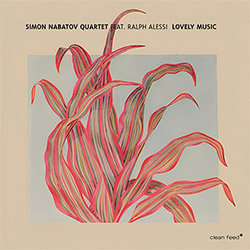


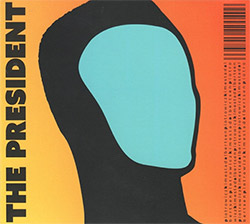
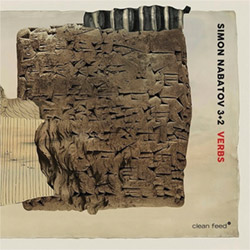
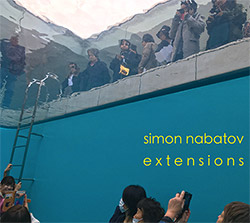

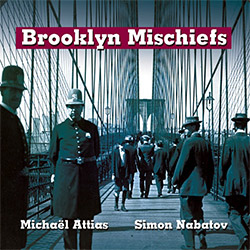
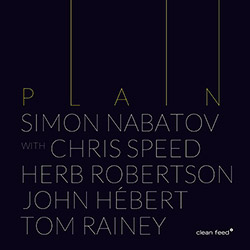


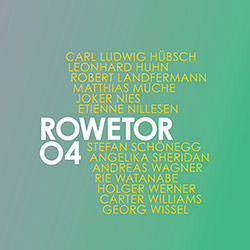
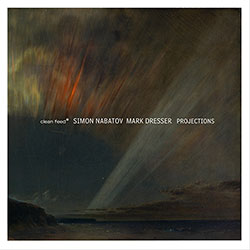


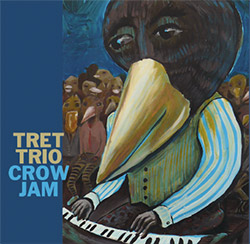
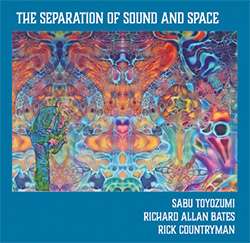
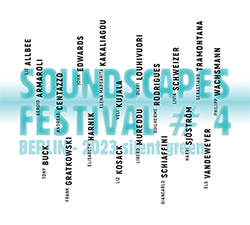

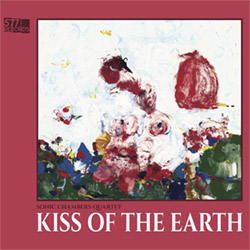
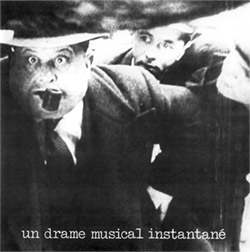




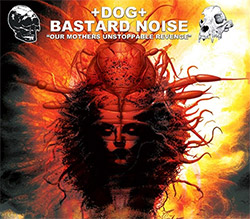



![Parker, Evan / Andrea Centazzo: Bullfighting On Ice! Live In Padova 1977 [VINYL]](https://www.teuthida.com/productImages/misc4/37064.jpg)
![Curran, Alvin / Andrea Centazzo / Evan Parker: Real Time [VINYL]](https://www.teuthida.com/productImages/misc4/37065.jpg)
![Curran, Alvin / Andrea Centazzo / Evan Parker: Real Time Two [VINYL]](https://www.teuthida.com/productImages/misc4/37066.jpg)

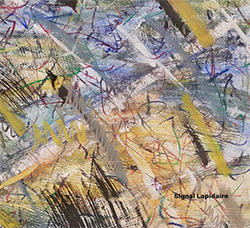

![Rodrigues, Ernesto / Jung-Jae Kim / Guilherme Rodrigues / Eric Bauer / Stephen Flinn: 5 In The Afternoon [2CDs]](https://www.teuthida.com/productImages/misc4/36957.jpg)

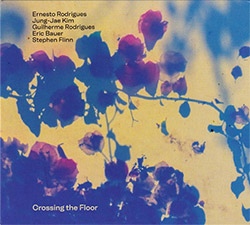





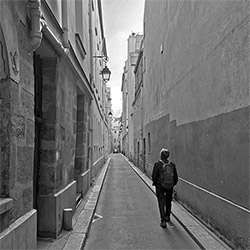
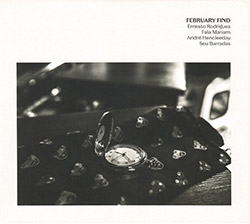




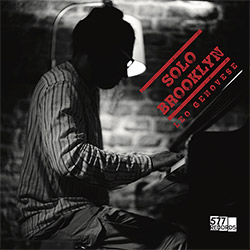
![Coley, Byron / Mats Gustafsson / Thurston Moore: Now Jazz Now: 100 Essential Free Jazz & Improvisation Recordings (1960-80) [BOOK]](https://www.teuthida.com/productImages/misc4/36932.jpg)
![Evans, Peter / Being & Becoming: Ars Ludricra [VINYL + DOWNLOAD]](https://www.teuthida.com/productImages/misc4/37026.jpg)
![HobbyHouse (Mia Dyberg / Axel Filip): HobbyHouse [CD + DOWNLOAD]](https://www.teuthida.com/productImages/misc4/36944.jpg)
![Mines, Kelsey / Erin Rogers: Scratching At The Surface [CD + DOWNLOAD]](https://www.teuthida.com/productImages/misc4/36945.jpg)
![Nebbia, Camila (feat/ Marilyn Crispell / Lesley Mok): A Reflection Distorts Over Water [CD + DOWNLOAD]](https://www.teuthida.com/productImages/misc4/36946.jpg)
![Vanheerentals, Adia: Taking Place [CD + DOWNLOAD]](https://www.teuthida.com/productImages/misc4/36947.jpg)
![Mines, Kelsey / Vinny Golia: Collusion and Collaboration [CD + DOWNLOAD]](https://www.teuthida.com/productImages/misc4/36948.jpg)
![Parkins, Zeena: Lament For The Maker [CD + DOWNLOAD]](https://www.teuthida.com/productImages/misc4/36949.jpg)
![Evans, Peter / Mike Pride : A Window, Basically [CD + DOWNLOAD]](https://www.teuthida.com/productImages/misc4/36950.jpg)
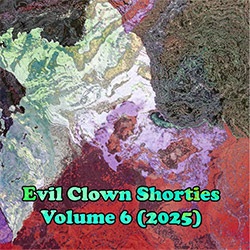
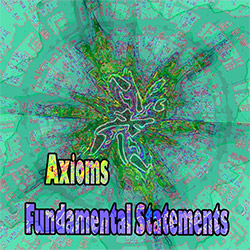

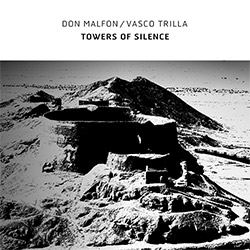
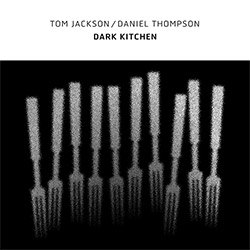

![Agnel, Sophie: Learning [VINYL]](https://www.teuthida.com/productImages/misc4/36841.jpg)
![Monaco, Amanda (w/ Michael Attias / Sean Conly / Satoshi Takeishi) : Deathblow [VINYL+ DOWNLOAD]](https://www.teuthida.com/productImages/misc4/36956.jpg)
![Belorukov, Ilia / Alex Riva: Wrestling For Futility [CASSETTE w/DOWNLOAD]](https://www.teuthida.com/productImages/misc4/36994.jpg)


![Genthon, Anouck / Lionel Marchetti: Suite Blanche [2 CDs]](https://www.teuthida.com/productImages/misc4/36642.jpg)
![Toeplitz, Kasper T.: Erosions Programmees [CD + BOOKLET]](https://www.teuthida.com/productImages/misc4/36639.jpg)
![Gate, The : Almost Live [CASSETTE + MAGAZINE]](https://www.teuthida.com/productImages/misc4/36836.jpg)






![A Magic Whistle: The Solar Cell [VINYL]](https://www.teuthida.com/productImages/misc4/36658.jpg)

![McGee, Hal: Columbus Expedition [Cassette w/ Download]](https://www.teuthida.com/productImages/misc4/36650.jpg)


![Jaeger, Kassel: Fernweh [VINYL 2 LPs]](https://www.teuthida.com/productImages/misc4/36541.jpg)





![+DOG+: The Light Of Our Lives [2 CDs]](https://www.teuthida.com/productImages/misc4/36009.jpg)


![Frey, Jurg : Composer, Alone [3 CDs]](https://www.teuthida.com/productImages/misc4/36927.jpg)








![Frey, Jurg with ensemble]h[iatus: Je Laisse A La Nuit Son Poids D](https://www.teuthida.com/productImages/misc4/36988.jpg)




![Pisaro-Liu, Michael: Within (2) / Appearance (2) [2 CDs]](https://www.teuthida.com/productImages/misc4/36831.jpg)










![Musicworks Magazine: #151 Summer 25 [MAGAZINE + CD]](https://www.teuthida.com/productImages/misc4/36559.jpg)

![Brown, Dan / Dan Reynolds: Live At The Grange Hall [unauthorized][CASSETTE]](https://www.teuthida.com/productImages/misc4/36245.jpg)



![Zorn, John: The Song of Songs [CD + CD BOOK]](https://www.teuthida.com/productImages/misc4/36923.jpg)

![Coultrain: Mundus [COLORED VINYL]](https://www.teuthida.com/productImages/misc4/33056.jpg)
![Hprizm: Signs Remixed [COLORED VINYL]](https://www.teuthida.com/productImages/misc4/30635.jpg)
![Halls Of the Machine: All Tribal Dignitaries [CASSETTE w/ DOWNLOAD]](https://www.teuthida.com/productImages/misc4/36134.jpg)



![Koenjihyakkei: Live at Club Goodman [2 CDs]](https://www.teuthida.com/productImages/misc4/36111.jpg)

![Sorry For Laughing (G. Whitlow / M. Bates / Dave-Id / E. Ka-Spel): Rain Flowers [2 CDS]](https://www.teuthida.com/productImages/misc4/35985.jpg)

![Rolando, Tommaso / Andy Moor : Biscotti [CASSETTE w/ DOWNLOADS]](https://www.teuthida.com/productImages/misc4/36106.jpg)


![Electric Bird Noise / Derek Roddy: 8-10-22 [CD EP]](https://www.teuthida.com/productImages/misc4/35970.jpg)








![Elephant9 : Mythical River [VINYL]](https://www.teuthida.com/productImages/misc4/34624.jpg)



![Elephant9 with Terje Rypdal: Catching Fire [VINYL 2 LPs]](https://www.teuthida.com/productImages/misc4/35355.jpg)
![Coley, Byron: Dating Tips for Touring Bands [VINYL]](https://www.teuthida.com/productImages/misc4/17906.jpg)

![Lost Kisses: My Life is Sad & Funny [DVD]](https://www.teuthida.com/productImages/misc4/lostKissesDVD.jpg)